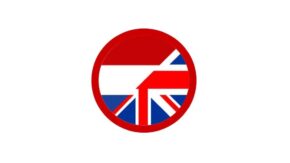Dutch-Phrase.com was first created many years ago. The goal? Simple. Dedicated to my private Dutch phrase notebooks. Now, sharing it with Dutch language learners worldwide. Beginners, intermediates and advanced students.
Transportation
- Translation?
Vervoer.
Meaning
- Translation?
Bedoelen.
Smartness
De slimheid. Translation? The smartness
Beauty
Ik ben mooi.
Translation?
I am beautiful.
Living
Translation? Wonen.
Wonen
In this category, I share with you how I write simple phrases with the word “living” in Dutch. Women. Woon. Woont. And How I describe where I live in the Netherlands. Ik woon in Rotterdam.
Alphabet
The alphabet in Dutch. Translation? Het alfabet in het Nederlands. Learn the alphabet in Dutch. Translation? Leer het alfabet in het Nederlands.
Vriendelijkheid
- Meaning?
- Example?
U bent aardig. (Formeel)
- Translation?
You are kind. (Informal)
Cap
What was the first word that I learned in Dutch? 1) Pet. Translation? 1) Cap.
Enjoyment
- Ik geniet van films.
Translation?
- I enjoy movies.
Travel
Ik reis. Translation? I travel.
Difference
Translation?
Phrase?
1) Ik weet het verschil (I know the difference)
2) Wat is het verschil? (What is the difference?)
3) Het verschil is duidelijk (The difference is clear)
Nederlands
Translation? Dutch. Phrase? Nederlands in drie maanden. Meaning? Dutch in three months.
Dutch
Translation?
Phrase?
Nederlands is moeilijk.
Meaning?
Dutch is difficult.
Komen
Meaning? To come.
Hello
Learn how to turn the word “hallo” into simple phrases in Dutch. Find out what “hallo meneer” means in Dutch. Discover how to translate “hello madam!”from English to Dutch. Learn how to practice the word “hallo” daily with people in Dutch.
Instruction
Translation?
Dutch instruction.
Translation?
Attention
Meaning? Aandacht I give you attention. Translation? Ik geef je aandacht.
Practice
Translation? Oefening. I want to practice Dutch. Translation? Ik wil Nederlands oefenen. I want to practice Dutch phrases. (Ik wil Nederlandse zinnen oefenen.) How to practice in Dutch. (Hoe te oefenen in het Nederlands.)
Bath
What are some words that we need to create simple phrases for taking a bath in Dutch? bad (bath) warm (warm) koud (cold) water (water) zeep (soap) handdoek (towel) badschuim (bath foam) ontspannen (relax) afspoelen (rinse off).
Shower
What is the difference between the word “bath” and the word “shower in Dutch? In this section, we are going to focus on words and phrases related to taking a shower in Dutch. And then, we will turn them into simple phrases in Dutch.
Offer
In this category, what are we going to learn? We are going to learn how to use the word “bieden” in Dutch. What does it really mean? To offer. What else? It can also mean “offering”. We offer. Translation? Wij bieden.
Accounting
In this category of accounting (boekhouding) in Dutch, what are we going to explore? We are going to use the words that are related to accounting, money and spending to create simple phrases in Dutch.
Accommodation
To help you communicate with landlords, real estate agents, or potential roommates while looking for a place to live in the Netherlands, we've put together a collection of useful Dutch phrases and words for this category.
Face
People have heads. Our head has a face. My face has a nose. I have ears, eyes and mouth. Now, in Dutch, what are the most common words for your face? In this section, we will explore the words and phrases for people’s faces.
Sleeping
Sleep deprivation, or "slaapgebrek," is when someone does not get enough sleep, and this can lead to a variety of physical and mental health problems. Monitoring one's sleep pattern, or "slaapritme," can help individuals improve their overall sleep quality.
Restaurant
Goedenavond, mag ik een tafel voor vier personen? When you look at the last words, phrase and question, what does it mean? In this section, we are going to learn some simple words and phrases to use in Dutch restaurants.
Goodbye
I say a lot of goodbyes to different people everyday in Dutch. In this section, we are going to examine different ways to say goodbye in Dutch. It is easy to learn. All you need is a single word in most cases. It is fun! It is simple.
Greetings
I love greetings in Dutch. Hallo! It is part of the culture. You walk on the streets. You see people. They greet you. You greet them. They answer. You answer them. It is part of learning Dutch. I use words and phrases for greetings.
Phrase
Even though, a phrase is a group of words that work together to convey a specific meaning. Usually, it does not contain a subject and a predicate to form a complete sentence. My Dutch examples still contain a subject and a predicate.
Bind
How to bind something in Dutch. Now, “binden” to bind in Dutch. How can you use it to create phrases? Ibind. Translation? ik bind. If “I bind pages,” how would I phrase it in Dutch? Ik bind pagina’s.
Words
In this section, I would like to share all the words I have learned in Dutch. Without words, can I create phrases in Dutch? Probably not. We need everyday words to create simple phrases in Dutch. I share countless words with you.
Vocabulary
I have a lot of notebooks about Dutch vocabulary. The section of my Dutch vocabulary notebooks. Learning one different word a day is important. How to learn 30 words in one month. Remember 365 different Dutch words in one year.
Price
The price is right. Translation? De prijs is correct. In this section, we will learn how to use the word “prijzen” in simple Dutch phrases. Wat is de prijs? (What is the price?) We will also look at how to ask questions with the word “price.”
Spoil
Another word that I don’t hear often is the following. Bederven. What does it mean? To spoil. What else does it mean? Spoil. Notice how it is just one word. I would also use it for the present continuous in English. Spoiling.
Understand
I am talking to someone in Dutch. I am not sure if they understand me. Can I use just one word to ask them if they understand? Of course, I can. Begrijpen? It basically means, “understand?” I use it often with people.
Bake
In our daily lives, what can we bake? That is one of the questions that I like to ask myself when I come across a new Dutch word like baking. Bakken. We can bake bread, plantains and corn. Now, it is time to phrase the experiences.
Begin
In the next section of learning simple Dutch phrases, what are we going to learn? How “to begin” in Dutch. Beginnen. We are also going to learn how to construct “I begin” in Dutch. Ik begin. It’s in the present tense first person singular.
Order
In the Dutch present tense, how do you write “I order shoes online?” Ik bestel schoenen online. In this section, what are we going to learn? We are going to explore how people order things using simple Dutch phrases.
Answer
What are some of the ways that we can use the word “answer” in Dutch? Antwoord. Example? I answer you. Translation? Ik antwoord je. In this section of Dutch phrases, we explore different ways to phrase, “I answer, you answer and they answer.”
Busy
It is one of the most frequently used words in Dutch. I often use it to tell people if I am busy. What if I am not busy? We will look at how to phrase it. If you want to say that two people are busy, how do you phrase it?
Celebration
How to phrase partying, wearing orange costumes, flea markets, concerts and traditional local gatherings in Dutch. Celebration of Christmas, New Year and Easter holidays are part of the Dutch culture.
Cooking
If I am someone who cooks, how will I phrase it in the present tense in Dutch? Ik kook. Meaning? I cook. What if I like cooking, how will I write it in Dutch? Ik hou van koken. Translation? It basically means I love cooking in Dutch.
People
How to use the word “people” to create simple Dutch phrases. Mensen. If you want to write, “I am a person” in Dutch, you will use the following sentence. Ik ben een persoon. How do you say, “I am a human?” Ik ben een mens.
Niceness
In this section, what are we going to learn? Nice = Aadig. Niceness = Aardigheid. We are also going to learn how to turn it into a phrase. Example? I am not nice. = ik ben niet aardig. How do you tell a stranger they are nice? U ben aardig.
Having
It is one of the most important elements in the Dutch language. Having (Hebben) To have. Example? I have (Ik heb). Now, how do you use it in simple phrases? In this section, you will learn how I use it daily in different situations.
Garden
It is one of my favorite words in the Dutch language. It is also one of the most commonly used words in The Netherlands. It is a country of beautiful gardens. Now, how do you use it? In this section, I share simple phrases with you about gardens.
Question
Asking questions in Dutch is one of the most important parts of learning the language. I learned how to use five important question words to ask all kinds of questions in Dutch. In this section, you will discover how to ask people simple questions from my posts.
Sitting
If you are sitting down, how do you phrase it in Dutch? In this section, we will explore, I am sitting down. If your friend is also sitting down, how do you write it in Dutch? If your boss is sitting down, how do you describe him in Dutch?
Drinking
In this section, what else will I share with you? How to write simple phrases about drinking in Dutch plural. Example? They drink coffee. = Zij drinken koffie.We will also look at another plural form. We don’t drink beer. = Wij drinken geen bier.
Negation
In this section, what would you find out? You will find out how to negate your phrases in Dutch. For example, how do you tell people that you don’t know something in Dutch? Another example is saying that you don’t drink, she does not drink or they do not drink in Dutch.
Movement

In this category, you will learn how to turn the word “beweging.” into simple phrases in Dutch. What does it mean? Movement. Translate it in different ways. Turn in the present tense. Make it plural forms.
Home

In this section, what will you learn? You will learn how to phrase, I am home in Dutch. What else will you learn? The second phrase you will learn is how to write, “You are home” in Dutch.
Craziness

Find out how to turn the word “ craziness” into Dutch phrases.
Meaning?
Example?
- Ik ben gek.
Translation?
- I am crazy.
Want to get even more crazy in Dutch?
Telephone
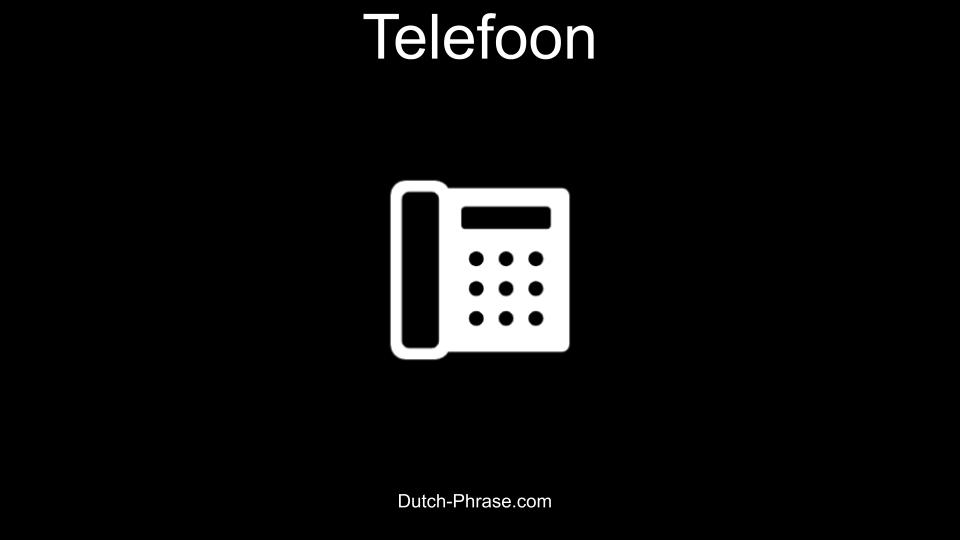
Buying a telephone.
Selling a telephone.
Picking up a telephone.
These are all phrases in English about a telephone, right?
Now do you phrase them in Dutch?
In this section, we will explore different ways to use the device “telephone.”
Translation
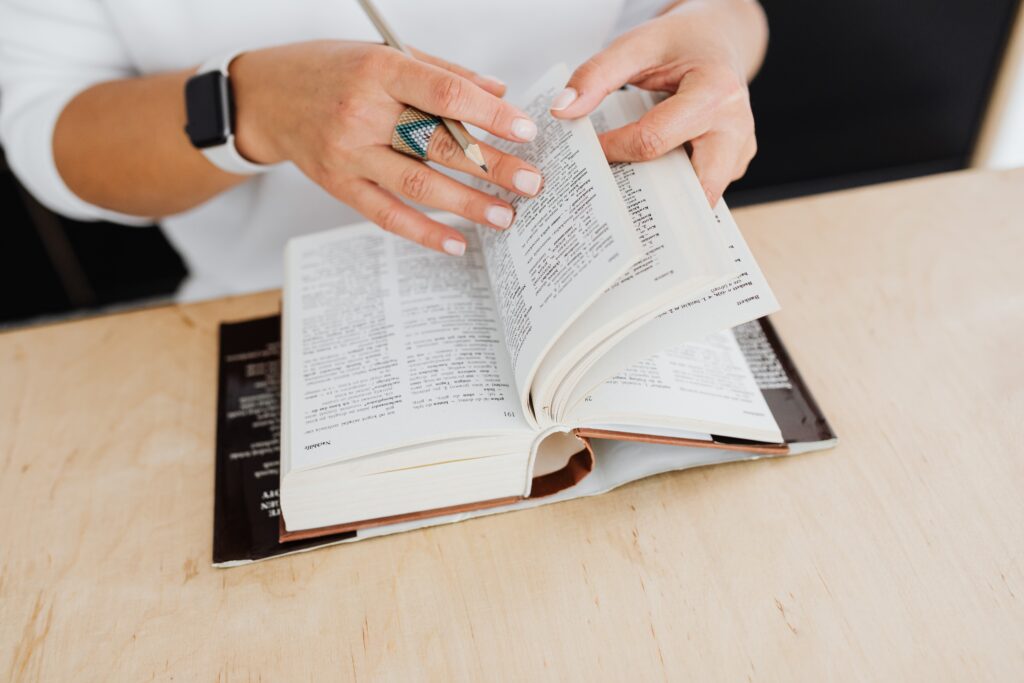
There is no direct translation from Dutch to English. I have discovered that communicating with short Dutch phrases can reduce the mistakes for beginners. There is only the equivalent of the Dutch translation in English.
Introduction

Do you already know how to introduce yourself in Dutch using very simple words and short phrases? Great! Now, how do you introduce your friends to people in Dutch? In this sexy section for beginners, we are going to look at different ways of introduction in Dutch.
New

Translation? Nieuw. Translation? New. Example? I am new. Translation? Ik ben nieuw. Another example? You are new. Translation? U bent nieuw. Addressing a stranger. How do I use it to create simple phrases in Dutch?
Letters
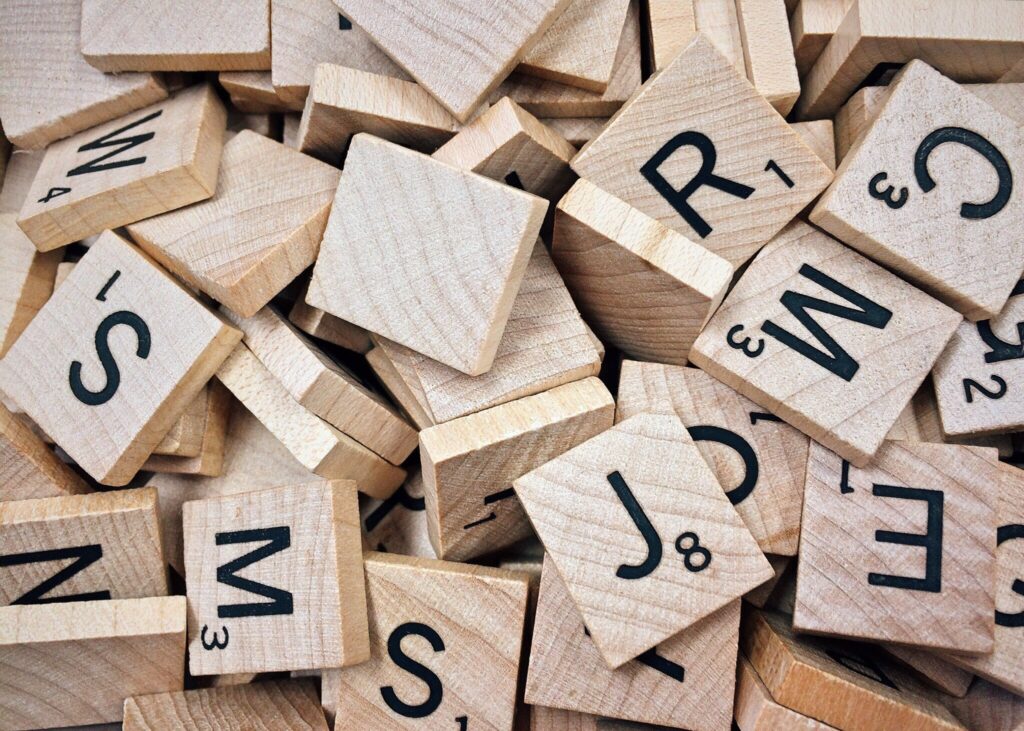
Oh, they sound different. Difficult? Not really! Challenging? Oh, yes! But it is an interesting challenge. I needed practice. Practice? YES! Lots of it! Practice! Practice! And more practice. Daily. Weekly! Monthly! Writing and saying Dutch Letters.
Pronunciation
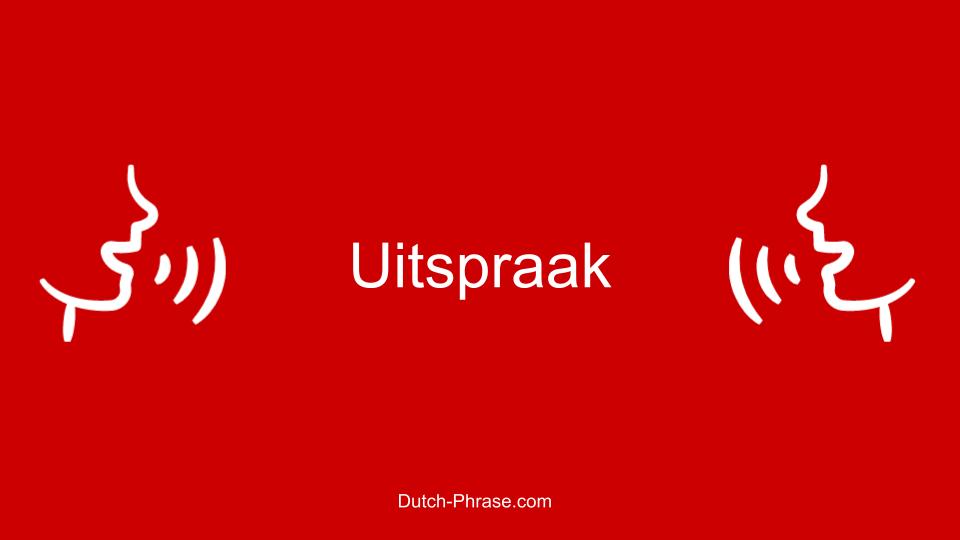
One of the first lessons that I learned long ago and far away is that the Dutch pronunciation can create many challenges for English speakers. In this section, I will share with you my challenges and solutions of Dutch pronunciation.
Kindness

How do you translate “kindness’ in Dutch? Vriendelijkheid. One of my favorite words. Now, how do I use it? In this lesson, I share with you different ways that I have used it over the years from English to Dutch.
About
Over. Translation? About. Simple phrases and lessons from my private notebook using about in Dutch. In this category, we are going to look at different ways that I like to use it to create simple Dutch phrases.
Spending
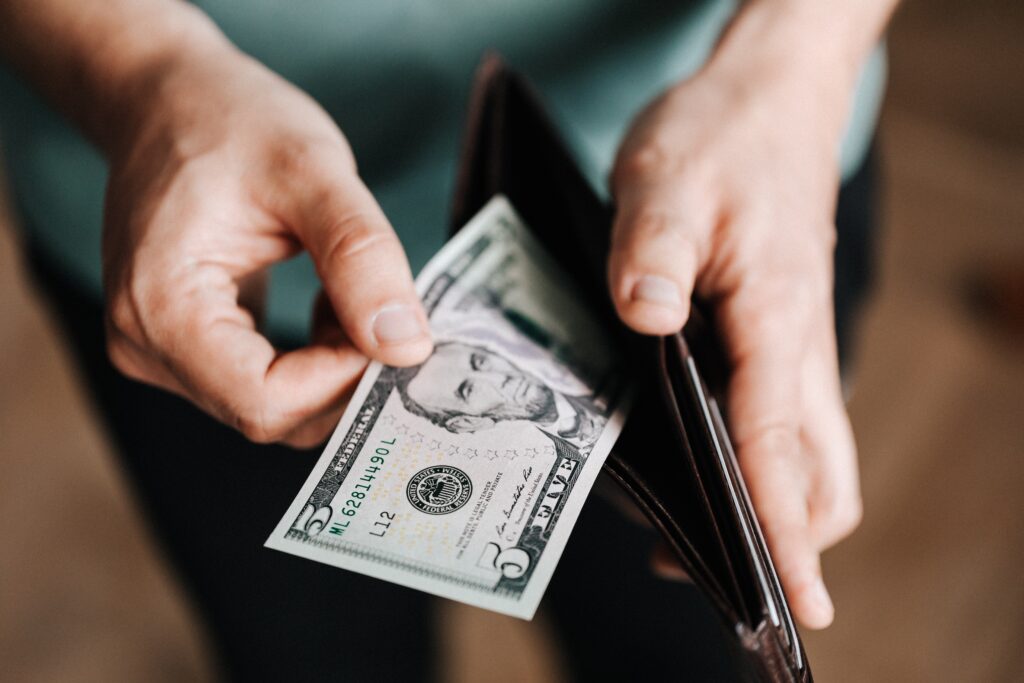
In these lessons, what are we going to learn in English? We are going to use the power of spending in Dutch. The present tense, singular and plural. As I add more and more phrases, I will share with you how I use spending in the past, perfect and future tenses in Dutch.
Availability
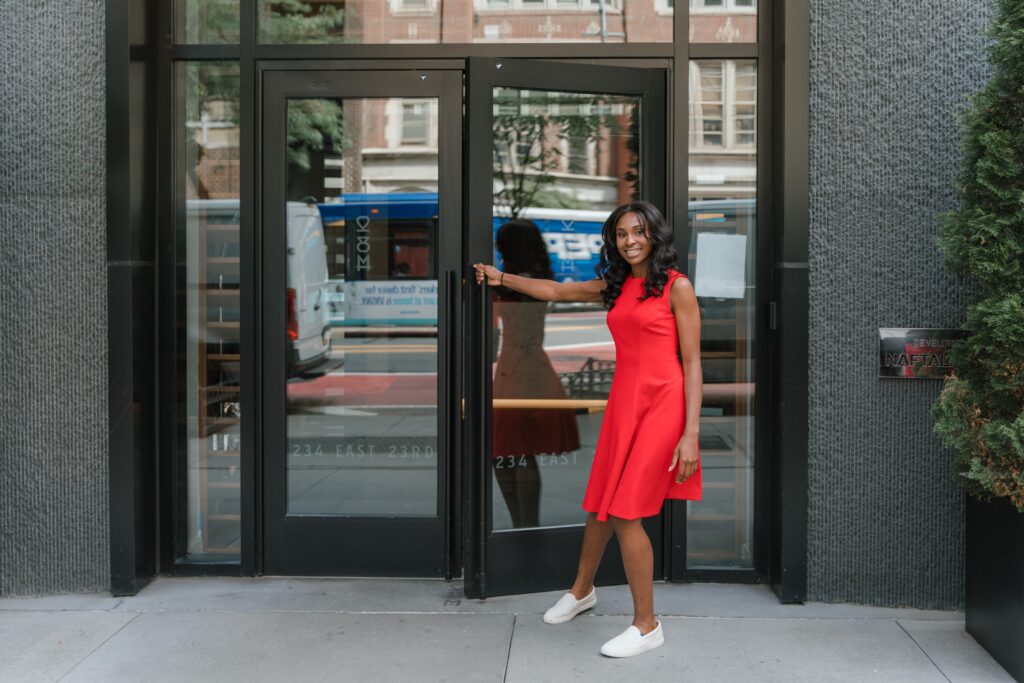
How do I use it in Dutch?
- 0) Beschikbaarheid.
- 1) Ik ben beschikbaar.
- 2) Je bent beschikbaar. (Informeel)
- 3) U bent beschikbaar. (Formeel)
- 4) Hij is beschikbaar. (Man)
- 5) Zij is beschikbaar. (Vrouw)
- 6) Het is beschikbaar. (Object)
- 7) Wij zijn beschikbaar.
- 8) Jullie zijn beschikbaar. (Informeel)
- 9) U bent beschikbaar. (Formeel)
- 10) Zij zijn beschikbaar.
How do I use it in English?
- 0) Availability
- 1) I am available.
- 2) You are available. (Informa)
- 3) You are available. (Formal)
- 4) He is available. (Man)
- 5) She is available.(Woman)
- 6) It is available.(Object)
- 7) We are available.
- 8) You are available. (Informal)
- 9) You are available. (Formal)
- 10) They are available.
What else am I going to share?
Thankfulness

In these simple Dutch phrase lessons of thankfulness, what am I going to share with you? How to write (thank you) in Dutch. Dankbaarheid. Translation? Thankfulness. In Dutch, how do you write thanks? Bedankt! Translation? Thanks!
My name is San
Translation? Mijn naam is San. = My name is San. As you can see from the above English and Dutch phrases, that is how I normally introduce myself to people in both English and Dutch. I do it in both social or formal situations.
I live in Rotterdam

Yes, that is my hometown. Whenever I meet people outside the city of Rotterdam, they usually ask me about where I live. And the interesting thing is that they usually ask me in Dutch and I always answer them in Dutch.
Rotterdam is located in South Holland
Inside the Netherlands, almost everyone knows where Rotterdam is located. But how about outside the Netherlands? When people from outside ask me where Rotterdam is located, I always tell them it is located in South Holland..
Holland is part of the Netherlands
Whenever I tell people Holland is located in the Netherlands or it is part of the Netherlands, they sometimes get confused. I know, because it is widely accepted and frequently used but there is a difference between the two.
The Netherlands is in Western Europe
And the next obvious question that some people ask me is about the location of the Netherlands on the world map. It is, in fact, located in Western Europe. Germany and Belgium are our neighboring countries.
I work at Zadkine education
I used to work at a local education center. I created some Dutch phrases in English. Back then, when people asked me about my work, that’s what I used to tell them. And almost everyone knows about Zadkane education.
I am a system administrator
After telling most people where I work, they would ask me the next obvious question in Dutch. What do you do at Zadkane Education? I would tell them exactly what I did back then in Dutch. It was fun!
Over Mij.
Translation?
- About me.
Vocabulary?
| English | Dutch | |
| 1) | About | Over |
| 2) | Me | Mij |
- Exercise?
Take a moment and study the vocabulary table above.
- Done?
If yes, continue …
- Question?
How many Dutch words do I need to phrase the headline (about me) of this page in Dutch correctly?
- Answer?
If you have taken the time to study the Dutch and English vocabulary table above, you can clearly see that I only need 2 Dutch words to phrase the headline of this page (over mij) correctly in Dutch.
- Clear?
Now, let’s continue …
- Pronunciation?
Coming here soon …
About This page
- Translation?
Over deze pagina.
Vocabulary?
| English | Dutch | |
| 1) | About | Over |
| 2) | This | Deze |
| 3) | Page | Pagina |
- Exercise?
Again, take a moment and study the vocabulary table above.
- Done?
If so, let’s continue …
- Story?
Over Deze Pagina
I first wrote this post (About Me = Over Mij) back in 2013.
Looking back now (April 2021), I am beginning to realize something very important and powerful about time.
That was 8 years ago.
Time truly flies.
Does it not?
Back then, this was how I used to introduce myself in Dutch using very simple phrases …
Objective?
- 1) Mijn naam is San.
- 2) Ik woon in Rotterdam.
- 3) Rotterdam ligt in Nederland.
- 4) Nederland ligt in West-Europa.
- 5) Ik werk als systeembeheerder.
Translation?
- 1) My name is San.
- 2) I live in Rotterdam.
- 3) Rotterdam is in the Netherlands.
- 4) The Netherlands is in Western Europe.
- 5) I work as a system administrator.
Review?
After reading the five simple phrases above on how I used to introduce myself from English to Dutch back in 2013 on my first Dutch-Phrase.com blog, let us look at what we are going to learn together on this page about me when I am finally done creating this lesson.
Objective?
- 1) First, I am going to show you how I introduce my name in Dutch.
- 2) Second, you are also going to hear and read how I describe the city and country I currently live in Dutch.
- 3) Third, we are also going to listen and read how I talk about where I work in Dutch.
- 4) Four, we are going to explore my hobbies in simple Dutch phrases.
- 5) Five, I will show you how I simply write and pronounce the languages I speak in Dutch.
Pronunciation?
As you learn and read the phrases above, you will soon find and click the audio links and listen to the pronunciations in Dutch.
- Keep visiting.
- Keeping reading.
- More to come.
Newsletter?
Before you go …
